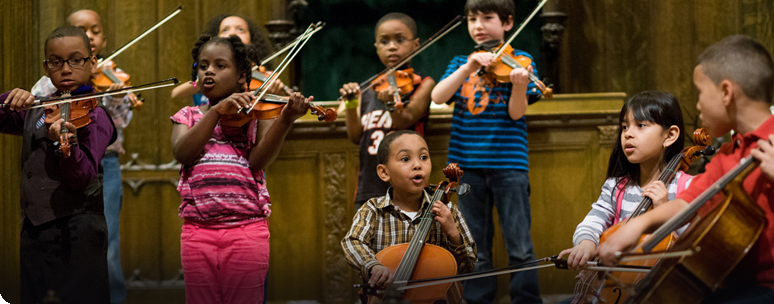A series on El Sistema USA
Jeremy Eichler, writing for The Boston Globe, has produced a wonderful three-part look at El Sistema USA, its roots in Venezuela, and its potential for changing the future of classical music and music education in America.
Ultimately, it is not only those
passionate about musical access and the plight of underserved youth who
will be invested in the success of El Sistema-inspired programs — and
their preexisting sibling efforts — in this country. It is also the
embattled classical music establishment itself. Whatever the market
research might be telling orchestra administrators, long-term solutions
to the problem of dwindling audiences will not come from singles nights,
video game takeoffs, or pop stars fronting orchestras. Gimmicks or
pandering will not work. Savvy would-be listeners can sniff the
desperation.
These problems
will require fixes from many angles, but in the end, solutions cannot
come without a radical redrawing of the map of who has a stake in
classical music as an art form. El Sistema posed this challenge for
itself in its first 35 years, and it has produced some impressive
results, so much so that it set off a surge of international interest
that has officially arrived in this country. Now the challenge for this
incipient US-based movement is to harness the energy and excitement in
the air, but also to build wisely and organically. There is too much of
genuine value here to risk this work being mistaken for a passing fad.
Part I: There is Magic in the Music
Part II: "You're Part of Something Bigger"
Part III: Catching the Upbeat to a New Movement
|
